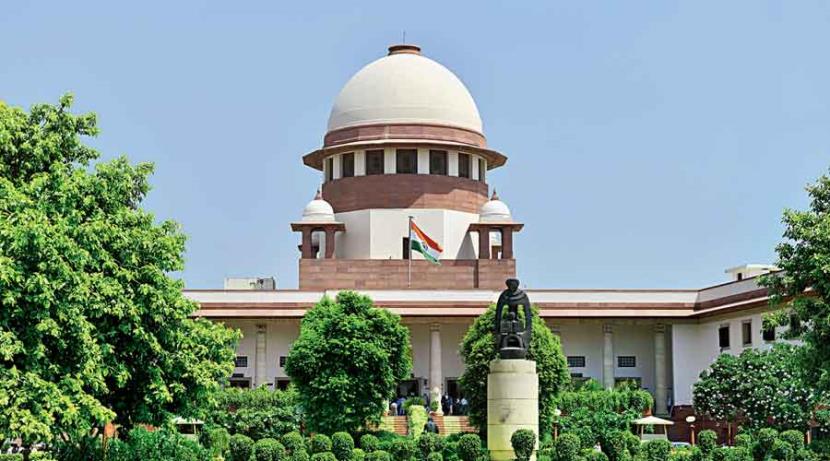NEW DELHI : The Supreme Court on Thursday said that exams have nothing to do with Hijab while hearing the mentioning of a plea seeking urgent hearing on a petition challenging the ban on sporting Hijab in educational institutes.
Senior Advocate Devadatt Kamat, appearing for the petitioner mentioned his plea seeking urgent hearing on petitions challenging Karnataka High Court’s order that dismissed petitions against the ban on Hijab in educational institutions.
Senior counsel Devadatt Kamat said that exams are starting on March 28 and students would lose a year as authorities are not allowing their entry in educational institutions with hijab.
Chief Justice of India NV Ramana said, “Exams have nothing to do with the hijab issue.” The Court also asked the counsel not to sensationalise the issue.
Last week the Supreme Court had said that the appeal challenging the Karnataka High Court’s order to uphold ban on Hijab in educational institutions would be listed for hearing after Holi break.
Some of the petitioners had approached the apex court challenging the order upholding the Karnataka government’s decision which directs strict enforcement of schools and colleges uniform rules.
One of the appeals in the top court has alleged “step-motherly behaviour of government authorities which has prevented students from practising their faith and resulted in an unwanted law and order situation”.
The appeal said the High Court in its impugned order “had vehemently failed to apply its mind and was unable to understand the gravity of the situation as well as the core aspect of the essential religious practices enshrined under Article 25 of the Constitution of India”.
“Wearing of Hijab or headscarf is a practice that is essential to the practice of Islam,” it added.
A bench of Karnataka High Court comprising Chief Justice Ritu Raj Awasthi, Justice Krishna S Dixit, and Justice JM Khazi on Tuesday held that the prescription of uniform is a reasonable restriction that students could not object to and dismissed various petitions challenging a ban on Hijab in education institutions, saying they are without merit.
The Hijab row had erupted in January this year when the Government PU College in Udupi allegedly barred six girls wearing the Hijab from entering. Following this, the girls sat in protest outside college over being denied entry.
After this, boys of several colleges in Udupi started attending classes wearing saffron scarves. This protest spread to other parts of the state as well leading to protests and agitations in several places in Karnataka.
As a result, the Karnataka government said that all students must adhere to the uniform and banned both Hijab and saffron scarves till an expert committee decided on the issue.
On February 5, the pre-University education board released a circular stating that the students could only wear the uniform approved by the school administration and no other religious attire would be allowed in colleges.
The order stated that in case a uniform is not prescribed by management committees, then students should wear dresses that go well with the idea of equality and unity, and do not disturb the social order.
A batch of petitions was filed against the government’s rule in the Karnataka High Court by some girls seeking permission to wear the Hijab in educational institutions.
On February 10, the High Court had issued an interim order stating that students should not wear any religious attire to classes till the court issued the final order. The hearings related to the Hijab case were concluded on February 25 and the court had reserved its judgement.
